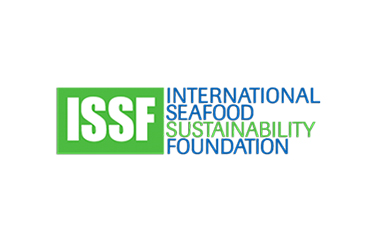Twenty-three of 25 companies partnered with the International Seafood Sustainability Foundation (ISSF) were operating in 100 percent compliance with the organization’s sustainable fishing measures, according to a new report.
The nonprofit’s Annual Conservation Measures and Commitments Compliance Report records participating companies’ progress in following the best practices for sustaining tuna fisheries all around the world. The report tracks conformance across 33 conservation measures, including:
- submitting quarterly purchase data by vessel, dates, species, and size;
- working only with longline vessels that have policies protecting sharks and marine turtles;
- avoiding work with vessels engaged in shark finning or that are on the regional fishery management organization IUU lists, and;
- only conducting transactions with purse-seine vessels who have received best practices information from ISSF.
The annual audit is conducted independently by MRAG Americas, a consultancy operating out of Essex, Massachusetts, U.S.A.
The most recent edition found 99.8 percent conformance – a slight increase from last year, when ISSF reported 99.6 percent conformance.
“In an era when sustainability pledges in the private sector are becoming increasingly commonplace, ISSF participating companies continue to stand out in their commitment to a rigorous, transparent audit and compliance process,” ISSF President Susan Jackson said in a statement. “We cannot take for granted the value of this consistent, public reporting on the business practices of the world’s leading tuna companies – even as we mark the ninth year of the ISSF approach.”
ISSF said the only issues the audit found were with two companies – Bellevue, Washington, U.S.A.-based Tri Marine and Philippines-based General Tuna Corporation, which had minor problems with “labeling by species and area of capture.” The report will be updated in the fourth quarter to reflect any improvements, ISSF said.
Released last month, ISSF’s most-recent “Status of the Stocks” report found both positive and negative developments for global tuna fisheries. Although 85 percent of the catch came from stocks with a healthy level of abundance – a 6 percent increase over ISSF’s 2022 report – 11 percent came from overfished stocks, a 2 percent increase over last year’s figures.
In 2022, ISSF unveiled a new strategic plan with a goal of having all participating companies sourcing tuna from Marine Stewardship Council-certified fisheries by 2027.
“The new plan helps us build on our successes to-date – like gains in transparency and accountability in tuna fisheries, as well as sustainable fishing innovations – while also tuning into today’s sustainability landscape,” Jackson said at the time. “We’re newly outlining our theory of change and a five-year goal – both of which emphasize the theme of continuous improvement. The Marine Stewardship Council fisheries standard remains central to ISSF’s objective.”






